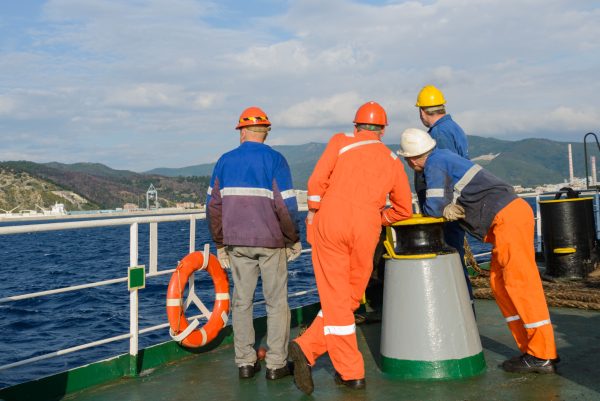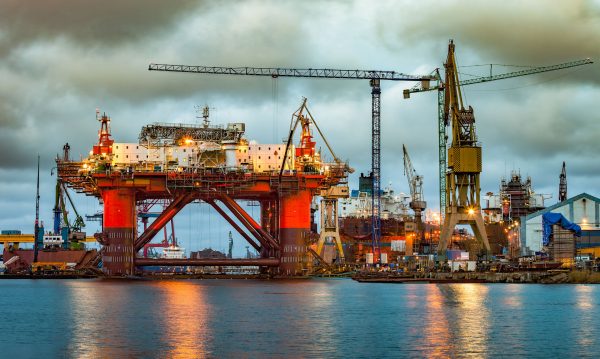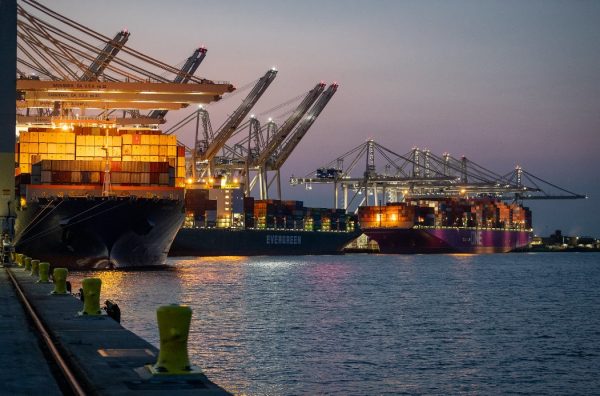Rubbers and plastics are found in many aspects of everyday life, from tennis shoes to dental floss to the running tracks of Olympic stadiums. Despite their frequent use, you may be unaware of the variety of uses these materials have in the marine industry. In this blog post, these are the reasons why rubbers and plastics are so important in the marine industry and how they help make things happen on boats every day.
They prevent corrosion
Without rubbers and plastics, the marine industry would be in a lot of trouble. These materials help prevent corrosion, which is a huge problem for ships and other vessels. Corrosion can cause serious damage to a ship, making it unsafe and potentially causing it to sink.
Rubbers and plastics help protect against this by creating a barrier between the metal and the water. This barrier helps to prevent rust and other forms of corrosion from taking hold. In addition, these materials are also resistant to salt water, which can further damage metal surfaces. Without rubbers and plastics, the marine industry would be at a serious disadvantage when it comes to preventing corrosion.
They keep things safe
- They help create a safe working environment for those who work with or around them.
- They can be used to create products that are safe for people to use.
- They can help prevent accidents by providing a barrier between people and dangerous objects or substances.
- They can be used to create products that float, which is important for boats and other marine vehicles.
- They can be used to make products that are resistant to water, which is important for items that will be used in or around water.
- They can be used to make products that are durable, which is important for items that will be used in harsh conditions or subjected to wear and tear.
- They can help reduce noise pollution by absorbing sound waves

They protect equipment
One of the most important roles that rubbers and plastics play in the marine industry is protecting your equipment. They act as a barrier between your equipment and the corrosive salt water, which can damage or even destroy it over time. Luckily there is a company that can help you, check out https://www.bosspolymer.com.au/.
They guard against threats
Rubber and plastic products are important in the marine industry because they help guard against a variety of threats. They can be used to create seals and gaskets that prevent leaks, or they can be used to make floats that keep boats from sinking. In addition, they can be used to create weather-resistant coatings for boat hulls. All of these applications help to keep people safe when they’re out on the water.
They make everything floatable
If it weren’t for rubbers and plastics, the marine industry would be at a standstill. Literally. These materials make everything floatable, from boats to buoys. They also help keep ocean pollution out of marine life habitats by acting as a barrier between harmful toxins and the water.
They guard against leakage

One of the most important roles that rubbers and plastics play in the marine industry is guarding against leakage. These materials provide a barrier between two surfaces, preventing liquids or gases from passing through. This is essential for ensuring the safety of both people and equipment on board ships and in marine facilities.
Rubbers and plastics also help to protect against corrosion, another serious problem in the marine industry. By forming a barrier between metal surfaces and salt water, these materials can prevent corrosion from occurring. This can extend the life of ship hulls, pipelines, and other metal infrastructure in the marine industry.
They contain water leaks
It is estimated that over 1 trillion plastic water bottles are produced each year. That’s a lot of water leaks! Plastic water bottles are made from petroleum, which is a non-renewable resource. Petroleum is also used to make synthetic rubber, which is used in many marine products such as boat hulls, life jackets, and wetsuits.
Synthetic rubber is more durable than natural rubber, so it can better withstand the harsh conditions of the marine environment. Plastic is also used to make fishing lines, nets, and other gear. Plastic is less likely to break or tear than other materials, so it can last longer in water.
They keep things protected from foreign bodies
We all know how important it is to keep things clean, but when it comes to the marine industry, it’s even more critical. That’s because anything that enters the water – whether it’s oil, chemicals, or other pollutants – can have a devastating effect on marine life. And that’s where rubbers and plastics come in. By creating products like seals, gaskets, and tubing out of these materials, we can help prevent foreign bodies from entering the water and harming marine life.

They preserve produce for longer periods of time
In the marine industry, rubbers and plastics play an important role in preserving produce. By keeping fruits and vegetables fresh for longer periods of time, they allow businesses to ship their products further distances without worrying about them going bad. Not only do rubbers and plastics help preserve produce, but they also help protect it from damage.
During transit, fruits and vegetables can be jostled around and knocked against each other, causing bruising or other damage. However, when wrapped in rubber or plastic, this damage is minimized, ensuring that the product arrives at its destination in perfect condition. Another benefit of using rubbers and plastics in the marine industry is that they can be used to create custom packaging solutions.
Conclusion
In conclusion, rubbers and plastics play a vital role in the marine industry. They are used to create everything from fishing nets to boat hulls. Without them, the industry would be at a loss. There would be no way for boats to stay afloat or for fishermen to catch fish if they didn’t have these materials.




